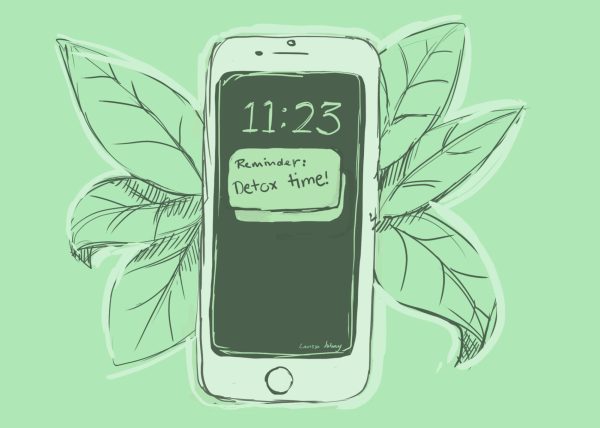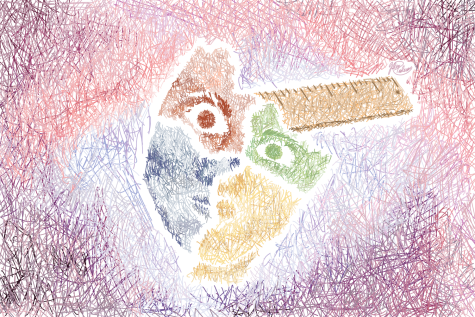What is the News Doing to Us?
The media is feeding us chronically depressing news, causing people to avoid the news.
Recently for homework, I was assigned to conduct a weekly news round-up for two of my classes. I spent the majority of my night scouring local, national, and international news platforms looking for the most “eye-grabbing” headline—but what even is “eye-grabbing” when it comes to news? Is it whatever the news source titles, “breaking news”? After about only thirty minutes of research, my stomach ached from the constant horror stories I was reading. I spent a little while longer attempting to find a headline with an optimistic word in it, but there was close to nothing, and whatever there was, did not seem “eye-grabbing” enough for me to present to my classmates and teachers. Can “breaking news” even be joyful news?
The cheerful news stories are not the ones that hold the most significance. A happy, fun story will generally not be the next front-page headline of any news platform. We have been conditioned to believe in the well-known catchphrase, “If it bleeds, it leads,”; news outlets have conditioned society to believe that violent, cruel stories are to be prioritized.
I do believe that the news is possibly the most important resource society has access to— people need to be aware of what is happening in the world and be educated; however, the public cannot consume solely sorrowful, depressing news for the rest of their lives without there ever being any sense of action or possible solutions instilled within the stories. I believe that there needs to be a change to the system of journalism. People must feel a sense of hope after reading the news.
A Reuters Institute for the Study of Journalism survey found that the United States has one of the highest news-avoidance rates in the world—42 percent of Americans avoid the news. This may appear to be a lack of interest or time; however, subconsciously or not, people are avoiding the news because it truly makes their life less satisfactory. Media exposure to mass violence events can fuel a cycle of distress for humans. People become dejected and discouraged when all that they are invited to read about is the turmoil and despair in their communities.
The news is one of the most important outlets that society has access to, and if people are increasingly avoiding the news at such a high rate, because of how it is presented to them, there needs to be a change within the institution.
There needs to be more of a ‘why’ instilled in modern-day journalism—journalists need to tell viewers why stories hold importance and how the information that is being presented can modify their life. Readers need to be told more than to just read something because it is categorized as “breaking news.” People need dignity, hope, and a sense of agency to be able to process the news in a meaningful and beneficial way. Solutions are not always black and white, so there cannot be a solution at the end of every news article, but there can be suggestions or ideas reasoned after every story. Individuals need a reason to continue to read the news, an aspiration to want to learn what the world is doing, and what they can do to better themselves and their communities within the tough situations that they are inevitably going to live through. We need to be left feeling more powerful after whatever story we read, even when it comes to the most depressing stories.
As is, journalism is failing us. With 42 percent of Americans avoiding the news because it is nothing but stories that discourage the general population, we cannot learn, we cannot grow, and we cannot respond with action and purpose. People avoiding the news entirely is one of the worst things that could happen to society as a whole, and clearly, this is starting to become a reality that citizens and media sources need to combat with institutionalized change. There needs to be a drive for action in what we are reading; there need to be possible solutions. The news is failing us, and we need to make a change.

Kiera '23 is joining the Advocate writing staff for her first year. She's dabbled in almost every extracurricular with an acronym, including DECA, HSA,...







